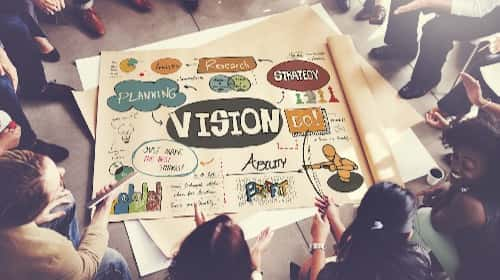 By the year 2030, the traditional skills of typing and handwriting notes may no longer be a necessary job skill. There’s a distinct possibility that our keyboards will become quaint reminders of the past, long replaced by sophisticated voice recognition software.
By the year 2030, the traditional skills of typing and handwriting notes may no longer be a necessary job skill. There’s a distinct possibility that our keyboards will become quaint reminders of the past, long replaced by sophisticated voice recognition software.
That’s the prediction of Dianna Wilusz, CEO of the Pendolino Group in Sausalito, a business consulting firm specializing in human resources and strategic planning. “Voice recognition will be so advanced in 10 to 15 years that you won’t need to type or write to communicate. Just look how far Apple’s Siri software has come. In earlier versions, it took Siri about three months to understand my voice intonation and the way I speak. Now, Siri’s accuracy is more than 95 percent. At first it was only about 30 percent. This type of technology has accelerated rapidly.”
Wilusz, a fan of the Star Trek franchise, which celebrated its 50th anniversary this year, points out that the starship’s crew didn’t have a need to type, and you rarely saw note taking with paper or pen. “I realize that show was set even further into the future than now, but they talked to their computers, which we’re already doing today.” She defines herself as a Gen-Xer who “identifies a bit more with the millennial outliers.” However, she admits, “I do still print things. I like having hard copies when necessary—but even that’s being replaced by the dual monitors on my computer.”
In 2030, the flying automobile might still be a gleam in an engineer’s eye, but Joe Madigan predicts we won’t be driving our cars for work as much as we do today. “A car won’t be a necessity to do your job,” says the executive vice-president of the Nelson Companies, a premier staffing and recruitment company. Madigan oversees Nelson’s 17 Bay Area and North Bay offices and three offices in Southern California.
Millennials here to stay
Before we scrap our keyboards, printers and earth-bound cars, the North Bay will almost certainly see an increase in manufacturing and distribution in the short term. “We haven’t seen a downturn in that sector in two years, and so far business has been better in 2016 than in 2015,” says Madigan. “This year and last, we also saw several smaller, pre-IPO tech firms entering the North Bay because they see it as a more affordable solution as prices continue to go up in San Francisco and Silicon Valley.”
Madigan believes Napa’s economy, for instance, will always be driven by agriculture and hospitality, and the wineries are attempting to appeal more to younger customers and visitors. “Social media is very big with Napa wineries, and they’ll need to continue to get the word out about their products that way and stage more events, like food and wine pairings. Wineries are dealing with younger generations that are ‘foodies’ and have more money than ever before.”
On the business side in Napa, Madigan predicts more manufacturing and distribution companies may decide to locate there. “But by 2030, if anything changes in Wine Country overall, it will be ways to simplify grape farming and winemaking, using technology to design new equipment and make production easier. That may create less of an impact on manpower.”
Regardless of what happens in local business in the next few years, Madigan says, “Companies will have to hire millennials and be willing to make a lot of changes to keep them around. The old fuddy-duddy cubicle won’t attract them, and employers must be on the cutting edge with their technology—not still using old Commodore 64 processors,” he adds with a laugh.
Creating excitement
These younger workers, continues Madigan, want to move from point A to point B as quickly as possible, and usually quicker than employers are ready to promote them. “They want to know their voice is being heard and to be recognized, so employers need to give them work they can get excited about. They love training and interaction, like bullpen areas and open forums. It’s important for employers to communicate with their millennial workforce constantly, even for small things.”
In the old style workplace, he adds, an employee did one individual task well. “Now it’s more about learning a multitude of tasks. Millennials might come into a job with one strong skill but they want to have more responsibility to perform many others.”
 Wilusz says that in recruiting millennials, she finds they want to get exposure at a bigger level in their jobs. “They want to be able to attend conferences, partner up with thought leaders and connect with people in higher levels of responsibility to have access. Part of the leader’s job is to open those doors for them and not be threatened by it. When I teach coaching classes for leaders, I try to show them how to point their millennial employees in the right direction and then get out of their way. They must cheer them on and support them. They have to create an environment that will bring out young workers’ naturally creative selves.”
Wilusz says that in recruiting millennials, she finds they want to get exposure at a bigger level in their jobs. “They want to be able to attend conferences, partner up with thought leaders and connect with people in higher levels of responsibility to have access. Part of the leader’s job is to open those doors for them and not be threatened by it. When I teach coaching classes for leaders, I try to show them how to point their millennial employees in the right direction and then get out of their way. They must cheer them on and support them. They have to create an environment that will bring out young workers’ naturally creative selves.”
When she graduated from college, Wilusz was told that her degree would open doors—but that’s as far as it would take her. “That was difficult to hear. The mindset I brought to my career was also the mindset of my father in his career—join one company and stay with it, probably your entire life. The idea was that you treat the company well and it will treat you well. That’s all blown up now. When recruiting millennials, you have to throw the old model out.”
Recreating the world
Employers must realize that many millennials won’t be part of their teams for more than two or three years, adds Wilusz, “but you still want to give them the best experience you can. You have to acknowledge that they’ll want to keep moving and learning, and there’s going to be only so much you can teach them and that you can create together. Then it’s possible they’ll go elsewhere, and you have to be fine with that.”
By comparison, Gen-Xers still have a focus on careers and being career-minded, says Madigan. “Their parents had long-term careers, sometimes with only one company or two, and we Gen-Xers tend to have that same strong work ethic, but with rapidly changing technology pushing us forward.”
Millennials have been raised in a throwaway society, he says. “Everything is disposable—you get a new phone when the next model comes out. But [millenials] are very curious and want to know how everything works. They want to touch it and feel it and then tweet about it, share it with the world: ‘This is what I’m doing right now, and in 10 minutes I’m going to tell you what I’m doing then.’”
They tend to live their careers the same way, adds Madigan. “They want to be part of the next big thing. Gen-Xers would say, ‘I’m going to change the world.’ Millennials say, ‘I’m going to recreate the world.’ They come out of school highly technical, intelligent and ready to hit the pavement. There seems to be a lack of importance of having a career versus doing something for the greater good, and it doesn’t matter if they don’t stay with a company for five or 10 years. They’re OK with changing jobs within a year if it will get them an advancement or better pay.”
This highly technical workforce coming right out of college has an advantage, Madigan says. “Companies are beginning to hire individuals not only for the job they can do now, but for what they can do two or three years from now if the company is able to retain them. Employers might also be looking for a programmer who’s bilingual, because they’re thinking ahead about future growth instead of just their immediate need.”
Innovation and infrastructure
In predicting the future, Wilusz speculates that millennials could be on the forefront of an entirely new industry based on what already exists in the North Bay. “We have a good tech influence here, a good presence in biotech and a tremendous amount of innovation. Add to that the multiple microclimates that exist in Sonoma, Napa and Marin counties, and there’s an excellent opportunity for experimental farming and research that may solve some of the fuel, food and water crises facing the planet today.”
For example, she says, put it all together and we could evolve into an emergent agriculture technology environment, where we innovate new and creative ways to grow and harvest food. “It’s very possible the North Bay could be on the leading edge of that, started by organizations already here. Combined with access to large financial resources and our close proximity to an international city with a global reach, it could happen.”
Madigan believes there’s much opportunity for the North Bay to attract even more technology, biotech and pharmaceutical interests—and the millennials who will make up their workforce. “These companies will go where a substantial residential population exists, like in Santa Rosa and Petaluma. But the North Bay must continue to improve its infrastructure, which means the widening of Highway 101 has to get completed.”





